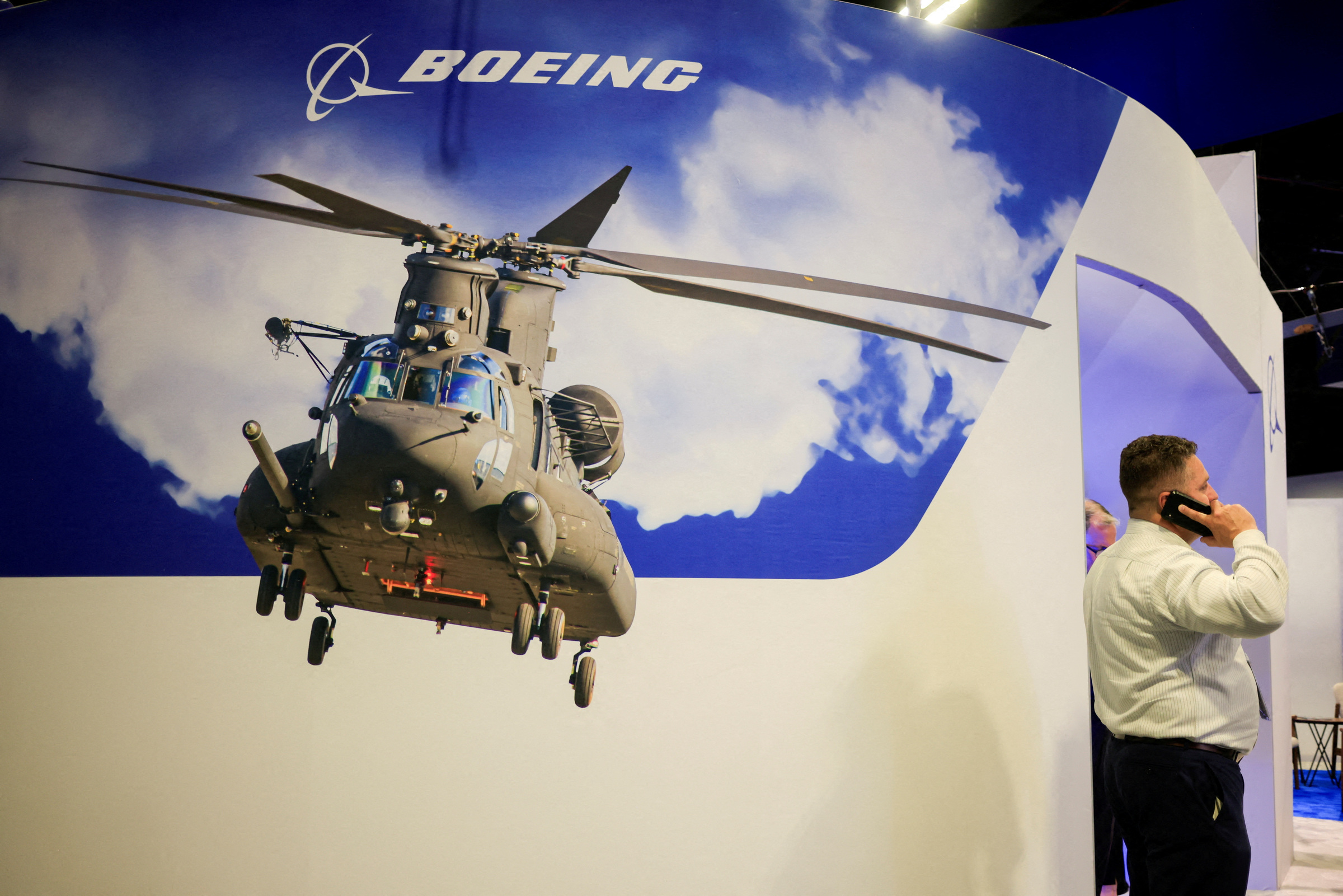These workers assemble the F-15 and F/A-18 fighter jets, the T-7 training aircraft, and the MQ-25 unmanned aerial refueling drone for the US military. They rejected Boeing's second contract offer the day before.
Tom Boelling, a representative of the International Association of Machinists and Aerospace Workers (IAM) in the region, stated that the workers "deserve a contract that reflects their skills, dedication, and crucial role in the nation's defense." The IAM is Boeing's largest union.
Boeing's defense unit said it was prepared for production disruptions and will implement contingency plans using remaining staff. The unit is expanding its St. Louis facilities to assemble the new F-47A fighter jet for the US Air Force.
 |
Outside the Boeing exhibit at an event in Florida in 5/2024. Photo: Reuters |
Outside the Boeing exhibit at an event in Florida in 5/2024. Photo: Reuters
The rejected 4-year contract offered a 40% average pay raise, including a 20% general wage increase and a $5,000 bonus for signing. It also included more frequent raises, vacation time, and sick leave.
"We are disappointed that our St. Louis employees rejected this contract offer," said Dan Gillian, site leader for Boeing St. Louis. This offer was similar to the first one rejected by workers a week earlier.
During last week's earnings call, Boeing CEO Kelly Ortberg expressed little concern about a strike. "I'm not overly concerned about this strike. We'll manage through it," he said.
He referenced a 7-week strike by 33,000 workers last year, who assemble the Boeing 737 MAX, 777, and 767 at plants in Seattle and Portland. That strike, also over wages, ended with a 38% pay raise over four years.
Ha Thu (Reuters)












